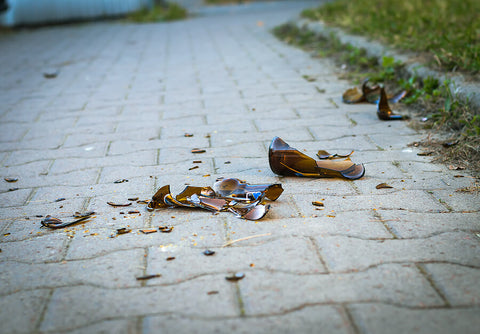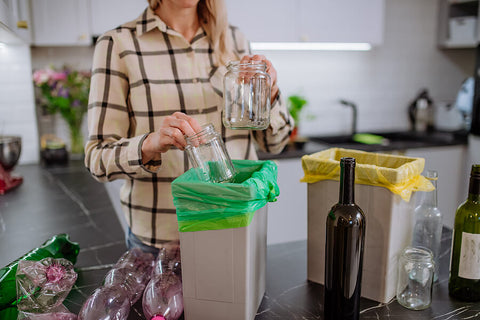From our favourite bottles of wine, to jam jars, windows, vases, medicine, and eye shadow, glass is used for many different products. It’s an incredibly versatile material that we use every day.
Glass is naturally inert, meaning it will not absorb chemical aromas, thus preserving the smell and taste of the contents inside for longer. This makes it the most stable of all packaging materials and perfectly safe for storing food and drink.
But what about when it comes to disposing of our empty glassware? The UK Glass sector has a very respectable recycling record of 76% — one of the highest rates of any packaging material. As glass is nominally 100% recyclable, it’s important we don’t glaze over what glass recycling is, how the glass recycling process works and how it can benefit the environment.
What colour bin does glass go in?
The colour bin used for recycling glass can vary between local authorities and from business to business. As a general rule of thumb, green is the most common colour associated with glass.
As always, we advise checking with your local council if you’re unsure to prevent any cross-contamination of materials.
Can you put broken glass in the recycling bin?

If your favourite wine glass has recently slipped from your hands or a lightbulb has shattered, you might be wondering if it can be given a second chance. Quite simply, the answer is “NO”. It creates an unsafe environment for anybody handling the contents of your recycling bin.
Glass is also extremely difficult to sort when broken, and if it’s broken down into fine shards, it’s generally too difficult to salvage. There may be an odd exception to this rule, so check your local authority’s specific rules and requirements.
Avoid wrapping the broken glass in newspaper and chucking it into your bin bag ready to hit the recycling bin. The glass will cut through the paper. The safest way to dispose of your broken glass is to place it inside a paper bag or cardboard box (a cereal box is fine).
Glass bin collections
How often and when your glass bin is collected depends on your location. Always check your local council website for glass bin collection days.
However, the sound of glass being recycled is not a smash hit with everyone. The sound of glass bins being emptied in built-up areas has led to waste management companies receiving noise complaints from residents.
Havant Borough Council are trying to combat this by rolling out larger glass recycling banks in 2022. Wheelie bins with a low decibel rating are also effective for reducing the noise levels associated with glass collection activity.
Why recycle glass?

Glass is one of the most sustainable materials on Earth as it can be recycled endlessly without a drop-off in quality or purity. It’s a simple and ‘pane’ free way to conserve both energy and natural resources, reduce air pollution, save space in landfills, and then some.
A glass bottle that ends up at landfill can take up to a million years to break down. In contrast, the recycling process of glass is rapid. For example, it takes just 30 days for a glass bottle (the quickest recycled-packaging process) to be recycled and back on store shelves.
Recycled glass acts as a substitute for 95% of raw materials. When the glass is taken to a manufacturing or recycling plant, it’s broken up into smaller pieces called cullet. Compared to making glass from scratch with raw materials, the cullet melts at a lower temperature, saving energy.
To put this into perspective, over a tonne of natural resources are saved for every tonne of recycled glass. This includes 1300 pounds of sand, 410 pounds of soda ash, 380 pounds of limestone, and 160 pounds of feldspar.
Recycling glass is also a proven way to combat pollution, which is where the cullet comes into play, as fewer emissions are emitted. Glass made from cullets cuts down air pollution by 20% and water pollution by 50%.
Of course, glass can also be a physical hazard, especially when it breaks. Glass fragments and sharp edges can end up in the surrounding environment if they’re not recycled, potentially causing injury to people and animals.
How to recycle glass
The simplest way to recycle your glass is to place it in your recycling wheelie bin for curbside collection. However, some glass such as Pyrex ovenware can’t be recycled because it’s been chemically treated to withstand high temperatures, which changes the structure of the glass. Be sure to check what types of glass can be recycled at home in your area, so you carry out your glass recycling correctly.
This also applies to commercial businesses in the hospitality sector, such as pubs and hotels that accumulate large numbers of empty glass bottles on-site. Investing in a large commercial wheelie bin is ideal for collecting, storing and recycling waste glass.
Sadly, glass used in the building trade is rarely recycled into new glass products. It’s instead crushed together with other building materials and hauled to landfill. This is because removing the glass is a labour-intensive effort with no immediate payback that justifies the expense to recycle it.
The sad reality is that most of the flat glass used in buildings could be dismantled and recycled in glass furnaces. Countries within the EU could avoid 925,000 tonnes of glass ending up on the scrap heap each year and reduce carbon emissions by in excess of 230,000 tonnes annually.
How to recycle glass bottles
Glass bottles and jars are suitable for your home recycling bin. Whether it’s a jar, bottle or non-food bottle (perfume, aftershaves, etc), most local authorities will recycle it. Alternatively, pay a visit to your supermarket as many have recycling banks for glass bottles and jars.
Don’t forget to empty, clean and rinse the bottles and jars so they aren’t dirty. Where possible, you should aim to keep all caps and lids on as this assists with the recycling process at the recycling plant.
If you support the local milkman or milkwoman, it would be udderly brilliant if you returned your bottles to them. Simply rinse and leave them in a safe area for collection.
Find out more
Wheelie Bin Solutions offers a fantastic selection of glass recycling bins for domestic and commercial use so you can bring your glass full circle and help save the environment. If you have any questions, don't hesitate to get in touch and we’ll be happy to help.








Craig Pryce
With over 17 years of experience in the waste and recycling industry, Craig is passionate about making recycling easier and reducing the negative impact of litter. He has been the managing director of Wheelie Bin Solutions (WBS) since January 2016, and prides the company on his expert knowledge, top-quality products, and customer service. His proudest moment was when WBS supported the 2012 Olympic Games, working in partnership with Contenur UK to supply over 9000 bin containers to all Olympic venues. Craig is always keen to share his knowledge, so whether you need advice about the benefits of a wheelie bin lock, or ideas for alternative uses for your wheelie bin, Craig will ensure your recycling and waste disposal habits are gold medal worthy.